Best Online Coding Courses | Top 10 Revealed
If you click to purchase a product or service based on our independent recommendations and impartial reviews, we may receive a commission. Learn more
10 Best Online Coding Courses to Kickstart Your Coding Journey
People often learn a new language as a personal challenge, or as a way to open up new horizons. But what about coding?
Learning to code is no longer just for computer geeks or master hackers – nowadays, anyone can learn to code to build a website.
Whether it’s to progress your career, explore the world of technology, or simply to have some fun, learning to code has never been easier. In fact, there are so many online resources, courses, and tutorials online that it can be hard to sort the good from the bad.
We’ve pulled together the best online coding courses so that you can choose the best one for you. Some are free, some are paid, but all of them are high quality.
Top 10 Online Coding Courses
- Codecademy – free
- Khan Academy – free
- MIT OpenCourseWare – free
- edX – free
- The Odin Project – free
- freeCodeCamp – free
- Udemy – free and paid courses
- Coursera – free and paid courses
- Udacity – free and paid courses
- Code Avengers – paid, with free trial
Each coding site has courses to suit different people, goals, and abilities, but each one has something awesome to offer. We’ve started with the free ones because, well, who doesn’t love the chance to learn new things for free?!
Find out more
- Check out our Coding For Beginners guide to learn more about which types of coding you should learn, and other helpful online resources.
- Coding is just one skill you can learn to improve your online prospects. Find out the top four Digital Skills You Can Learn At Home, plus free resources to help you get started!
- Read our Wix Code Overview to discover how you can unlock more advanced editing without writing code – helpful for building websites before you’ve completed these online courses!
1 Codecademy
Best for total beginners
Key Info
- Has been running for seven years, with over 45 million learners so far
- Learn HTML & CSS, Python, JavaScript, Java, SQL, Ruby, C++, C#, PHP, Swift, and more
- You learn courses at your own pace, so duration varies – around 4 months on average
- Take part in interactive lessons, create real projects, “get career ready.” If you pay for Codecademy Pro, you can even receive a Codecademy Pro Intensive certificate
- You can learn for free, or upgrade to a paid plan for $19.99 per month for extra learning tools
This is one of the most popular online coding sites, with 45 million learners in just seven years – they must be doing something right! Codecademy makes learning to code as easy and beginner-friendly as possible – you can even take a quiz to help you find your strengths and which type of code you should learn!
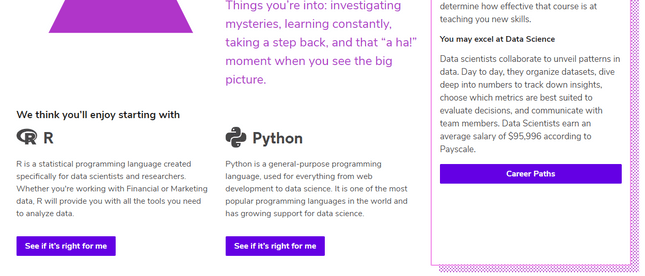
Once you’re ready to start learning, you get to dive straight in with hands on, interactive, and easy to follow lessons that get you writing real code from the start. There’s a wide range of courses, from HTML and CSS, to Python, JavaScript, and more.
You can learn for free with Codecademy, but if you want a more advanced level, then you can upgrade to a paid plan for $19.99 per month – although it’s not necessary.
2 Khan Academy
Best for younger learners
Key Info
- Nonprofit organization with partnerships with NASA and MIT, among others
- Learn HTML & CSS, JavaScript, SQL, and more
- “Hour of Code” takes an hour to learn the basics of a single topic. Other courses usually take three days to a week
- Not an accredited school, so can’t contribute to a degree or diploma
- All courses are 100% free!
Khan Academy is a truly awesome resource. This nonprofit learning organization has been going for over a decade, and has tons of courses covering all kinds of topics. It doesn’t have the biggest range of coding courses, but you’ll still find plenty of choice in its computer programming library.
Khan Academy’s courses are perfect for total beginners, and make learning super easy to follow. Many courses are aimed at younger learners, so it’s perfect for getting the whole family involved.
A great place to start is the “Hour of Code”, which introduces you to a topic for an hour. You can make web pages using HTML or program drawings using JavaScript, or learn how to create databases – each topic comes with its own end-goal, so that by the end, you’ll have used your new skills to create something!
3 MIT OpenCourseWare
Best for those with a grasp of the coding basics
Key Info
- Run by MIT
- Learn Python, Java, C and C++, MATLAB, Computational Thinking, Data Science and more
- Some courses last four weeks, others you can learn at your own pace
- In-course tasks and assessments, but no certificates are available
- All courses are free to learn
Once you’ve had a go at some coding basics, you’ll want to check out MIT OpenCourseWare. It has introductory courses for you to start off with, and then a whole range of more advanced material for you to sink your teeth into once you’re ready.
The choice with MIT OpenCourseWare’s introductory courses is awesome. You’ll find:
- General Introductions
- Language-specific courses
- Follow-on courses
All courses are totally free, and walk you through everything from coding fundamentals to more advanced material, such as algorithms. You don’t need coding experience to take on MIT OpenCourseWare’s courses, but some do ask for you to be familiar with precalculus.
4 edX
Best for a huge range of high quality courses
Key Info
- Run by Harvard and MIT
- Learn Python, JavaScript, HTML, Java, and more
- Courses vary – some last 5 weeks, others 5 months
- You can achieve a professional certificate depending on the course you choose
- All courses are free to learn, but you’ll pay a fee for certification
edX is a highly reputable online learning platform – it’s an open-source, college level program run by Harvard and MIT, so you can bet you’ll find some top notch coding courses!
edX is totally free and non-profit – learning comes first, which is clear from the vast number of courses on offer. The 2,500 courses include over 600 on computer science, and over 200 on data science.
You’ll find courses tailored to various levels of ability, and each course comes with a handy description – outlining the difficulty, time requirements, and course description – to help you choose the best one for you.
You can work towards a professional certificate if you’re after a deeper, more serious learning experience.
5 The Odin Project
Best for long-term learning
Key Info
- Sponsored by Thinkful
- Learn HTML & CSS, JavaScript, GIT, Ruby, Databases, Ruby on Rails, NodeJS
- The Odin Project says it takes around 1,000 hours of work to reach an employable level
- No certificates – but you do build a portfolio of work while you learn
- All courses are free!
On top of its cool name, The Odin Project offers pretty cool coding courses too. It’s sponsored by Thinkful, another online learning program, and is run by passionate volunteers.
The Odin Project is totally free and open source, making it accessible for anyone and everyone. It’s beginner-friendly, and is best if you’re ready to commit time to learning at your own pace and not rushing through the lessons. You learn from a curriculum, build projects, and can ask for help from a community of both beginner and experienced developers.
The Odin Project is designed to help you kickstart your career in web development. If you’re self-teaching and want to learn how to think like a developer, as well as arm yourself with a well-rounded skill set, this is the best online coding course for you!
6 freeCodeCamp
Best for kickstarting a coding career
Key Info
- Nonprofit organization
- Learn HTML & CSS, JavaScript, Git, Ruby, Databases, Ruby on Rails, NodeJS
- Courses are self-paced, but on average each certification takes around 300 hours of dedicated learning
- There are plenty of certifications that you can achieve with freeCodeCamp (see below)
- All courses are free!
As you can guess from the name, freeCodeCamp is a free coding site. This one teaches you how to code through an online curriculum, before getting you started on real-world programming projects for nonprofits. Pretty cool, right?
This isn’t so much a “learn code for fun” type of coding site, making it best if you’re keen to get a certification at the end of your course. The certifications you can get from freeCodeCamp include:
- Responsive Web Design Certification (300 hours)
- JavaScript Algorithms and Data Structures Certification (300 hours)
- Front End Libraries Certification (300 hours)
- Data Visualization Certification (300 hours)
- APIs and Microservices Certification (300 hours)
- Information Security and Quality Assurance Certification (300 hours)
- Coding Interview Prep (Thousands of hours of challenges)
Similar to The Odin Project, this online coding course is best if you’re willing to put the hours in and dedicate yourself to more long-term learning. It’ll be worth it in the end – over 40,000 FreeCodeCamp graduates have scored jobs at tech companies since 2014!
7 Udemy
Best for dipping in and out of coding
Key Info
- Over 10,000 coding courses
- Learn HTML & CSS, JavaScript, Git, Ruby, Ruby on Rails, C++, C#, Java, and more
- Courses vary in length, from one hour to 80 hours
- You only receive a certificate of completion from Udemy, which simply acknowledges that you finished the course – it won’t impress employers too much!
- Some courses are free, but most are paid
Udemy is a popular online resource for topping up your knowledge and learning new skills – usually with a focus on career development. When you type “coding” into the What do you want to learn? box on Udemy’s homepage, you get over 10,000 results!
Most of these results are paid courses, but they all come with a 30-day money back guarantee so you can try them totally risk-free. You can easily view how others have rated each course, how many hours the course takes to complete, and also which level the course is recommended for.
You can filter by topic, level, price, and more to help you find the perfect course for your needs. Udemy uses video courses, which makes it a fun and engaging way of learning code online. You can learn on your own schedule, at your own pace, and choose whether to pay for courses or just stick to the free one available.
8 Coursera
Best for academic learning
Key Info
- Partners with over 200 of the world’s top universities to offer over 4,000 courses
- Learn Python, C, HTML & CSS, JavaScript, SQL, MATLAB, and more
- Basic courses take four to six weeks, while certifications can take up to four years!
- Different levels of certification available, from skill specializations to online degrees
- Some courses are free, others start at around $39
Coursera is an online learning program that offers university introductory courses for coding, from Python basics to advanced machine learning. It’s a perfect way to learn professional coding skills for free, with courses from real university professors from Stanford, Princeton, Yale, and more.
The majority of Coursera’s coding courses are aimed at beginners, so don’t be afraid to jump in even if you have no coding experience. You can continue to learn for free, progressing through the levels from beginner to advanced, or pay to receive a certificate.
9 Udacity
Best for those with a goal in mind
Key Info
- Founded by two Stanford instructors, focuses on tech education
- Learn Python, C++, Java, JavaScript, HTML, CSS, and much more
- On average, single paid courses can be finished in a month by working five to 10 hours per week
- You receive a certificate of graduation. For deeper learning, you can take a Nanodegree
- There are standalone free courses and paid courses – the Introduction to Programming Nanodegree costs $399 per month for four months
Udacity is similar to edX and Coursera, in that it’s an online learning platform – but the big difference is that it focuses solely on technology. While the others have courses on everything from coding to creative writing, Udacity only offers courses on areas such as data science, programming, and cloud computing.
This means that you can find programming courses much more tailored to your own goals, career targets, or learning targets. You can access free, one-off courses, but for real development, you’ll want to consider paying for Udacity’s “Nanodegree programs”, where you follow a full syllabus over the course of a few months to get your skills as job-ready as possible.
For all of Udacity’s Nanodegrees, you can view tons of detail about the course breakdown before jumping in, such as how long the course takes, what experience you need, and what you’ll be learning.
10 Code Avengers
Best for coders of all ages looking for fun learning
Key Info
- Code Avengers’ mission is to make learning digital technologies fun and engaging
- Learn Python, HTML & CSS, JavaScript, and more
- Learning a language takes one to three months, while building a career takes six months or more
- You can get certified by Certiport when you learn with Code Avengers
- 7-day free trial (with access to first five lessons of each course), then $29 per month
Code Avengers is an engaging and interactive online coding course that makes learning code possible (and fun) for all ages. It has material for learners as young as five, as well as courses for older users, and resources for teachers too.
If you’re over 15, then you’ll need the Pro courses, where you can focus on learning a new language, start building a career, or just have a go at something quick to see what you enjoy.
Code Avengers is perfect for total beginners, with illustrations and animations making for a delightful user experience. The courses are easy to follow, and equip you with useful skills to take your coding to the next level.
You get a seven-day free trial, where you access the first five lessons of each course. After that, you’ll need to upgrade to a premium plan to continue learning, which costs $29 per month (though it’s cheaper if you sign up for an annual plan).
What Are the Different Types Of Coding?
It can be tricky to know where to start when learning to code, because there are so many different programming languages. Here’s a quick run-down of five of the main types you’ll come across when exploring the best online coding courses listed above, to help you know which ones you might want to learn.
1. HTML & CSS
HTML and CSS are computer languages that are a standard requirement for all web developers. HTML tells browsers how to read webpages – for example, HTML code signals to your browser what’s a paragraph, what’s a button, and so on.
CSS then tells the browser how these elements should look. This affects the color, spacing, and general styling of the elements on a webpage.
2. JavaScript
JavaScript is what makes websites interactive – this is the magic behind any elements on a site that move or change without you doing anything to them!
Because of this, JavaScript is often used alongside HTML and CSS, because they’re all frontend coding languages – that is, they all affect how things look and behave on a website from a user’s point of view. Other languages apply to the “backend” of your site, meaning they control things that happen behind the scenes. We’ll look at these next!
3. Python
Python is ideal for processing data, making it popular with biology and math students, as well as researchers. You’ll want to learn Python if you’re creating a site that analyzes a lot of text or data sets.
4. Java
Java is a programming language that’s usually used for embedding media. Java is especially useful because you can take the code and use it across multiple platforms. You don’t even need to customize it to move it from a PC to mobile!
5. C and C++
These are both separate languages, but for the sake of speed, we’ll quickly walk you through the differences between C and C++.
C is a pretty low-level language that’s usually used for communication between computer hardwares. It’s commonly taught online and is pretty popular, so you’ll likely spot it time and time again.
C++ is an improvement on C because it organizes information in a much better way – it stores information in bundles, making it easier to use. This makes it particularly useful for large, complex systems.
Best Online Coding Courses: Summary
We’ve walked you through the best online coding courses to be found on the internet. There are many more to choose from, but each of the courses featured in our list has something to set it apart from the crowd.
Whether it’s structured, academic courses or fun, interactive lessons for all the family, there’s something here for everyone. Let’s have a quick recap of the top coding learning platforms.
Top 10 Online Coding Courses: Recap
- Codecademy – free, and ideal for total coding beginners
- Khan Academy – free; a wonderful nonprofit resource perfect for younger learners
- MIT OpenCourseWare – free, and perfect for gaining a deeper understanding once you’ve mastered the basics
- edX – free, highly reputable, and run by Harvard and MIT
- The Odin Project – free, best for long-term learners
- freeCodeCamp – free, best for those pursuing coding careers
- Udemy – free and paid courses, with a huge range of video courses
- Coursera – free and paid courses; provides academic learning with university lessons
- Udacity – free and paid courses, strong tech focus, best for those with clear goals in mind
- Code Avengers – paid, with free trial; a fun and engaging learning platform for kids and older learners alike
With so many high quality, free and cheap coding courses available, why stick to just one? Pick out your favorites and start coding – then come back and let us know how you got on!
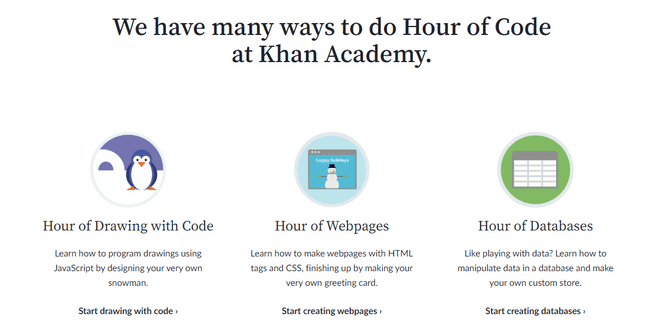
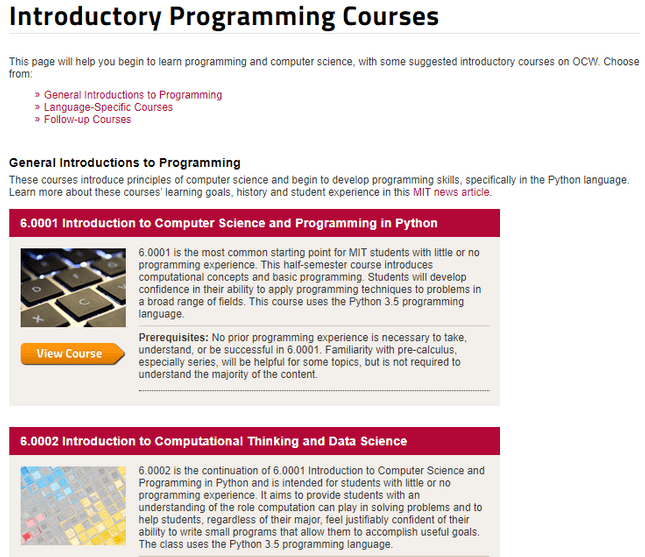
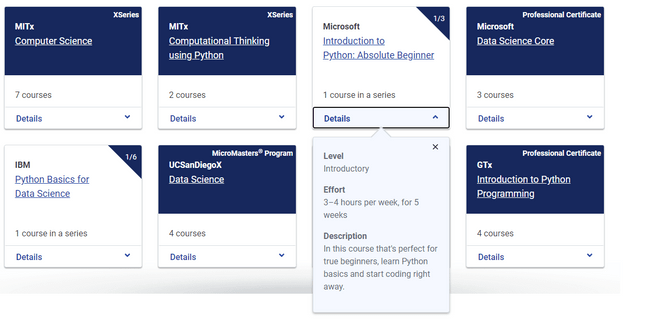
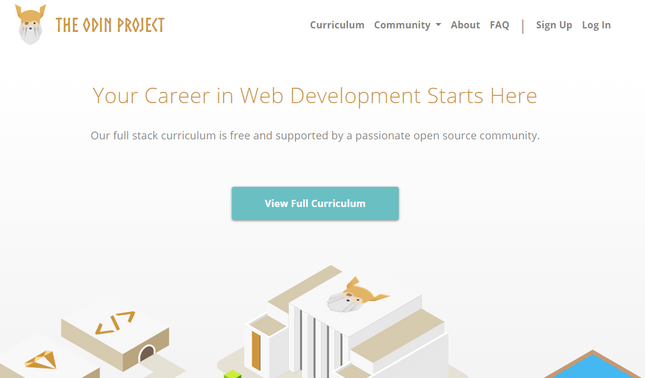
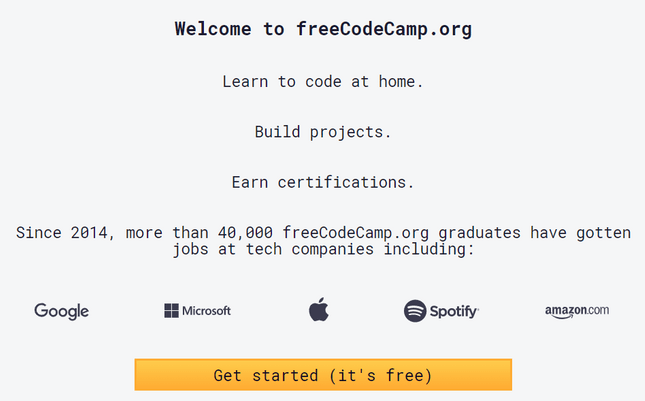
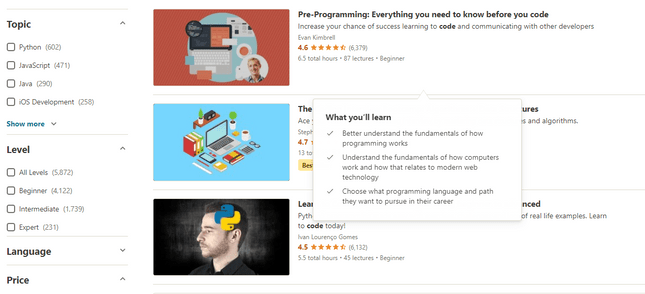

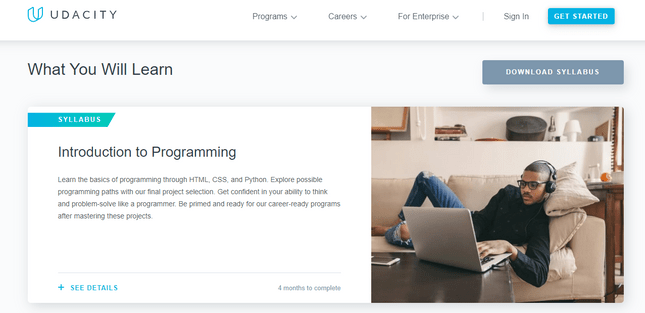
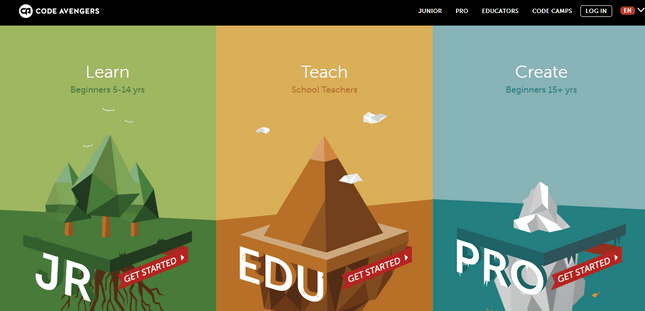





3 comments